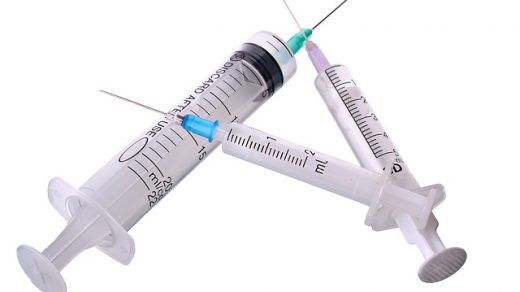A new generation of Teeth Now dental implants are designed to last for the rest of your life. If you take care of them an improved smile will increase your confidence when forming new connections. Perhaps even more importantly the new teeth can enhance your relationship with food.
This complete dental implant care guide for taking care of dental implants is based on three major categories:
- Tips on the days and weeks after a dental implant procedure
- Tips for a lifetime of dental care keep dental implants clean and healthy
- General advice on the full mouth implant dental treatment
Who do we write this guide for? For those caring for the New Teeth Now implant dentistry. If you have implants that are only one-time or bridges supported by implants. If you are thinking of the replacement of your entire upper and lower teeth using dental implants. If one of these scenarios sounds to you, read on for some useful guidance.
After-surgery dental implant care
The weeks and days following the procedure are crucial to ensure proper care for your dental implant. The body is working to heal the bone and gum tissue around the implant sites. This is also the time when the implant is going through the process of osseointegration to your jaw. Implants require time to fuse with your bone to ensure a sturdy support for your prosthesis.
The time to recover after treatment with the New Teeth Now procedure, after which most patients are able to feel normal, typically takes 3-7 days.
Here are our suggestions for taking care of your newly-placed bridges and implants during the delicate recovery phase.
Do not remove stitches.
Allow stitches to fall out or dissolve on their own. Unless your doctor has advised other ways the stitches you have will disintegrate or fall off by themselves within 7-10 days. Don’t attempt to take stitches out by yourself.
Utilize Ice.
If the swelling occurs, treat the area affected with ice. face. Apply ice for 20 minutes in the morning and then 20 minutes off during the first two days following the procedure. On the third day, you can apply ice or heating, in addition to alternate applications for stiffness in the muscles.
Do not chew Ice.
When applying ice to help reduce swelling, you should only apply it to your face. Don’t put it in your mouth. Also, do not chew on the ice.
Avoid excessive care. Even something as basic as over-inspecting the site of surgery can affect its healing. If you tug at your cheeks and open your mouth wide it is possible to tear the surgical site which is seeking to repair.
Rinse thoroughly with hot salt water.
Wait for 24 hours following the procedure and then start washing with salt water.
Clean your teeth gently.
You may brush your teeth on days that follow your New Teeth Now procedure. Make sure to be gentle. Make sure to use a soft-bristled toothbrush. The area requires the time needed to recover. Be extra delicate, especially close to the site of surgery that is the site of the implant. Don’t brush the surgical area at the gum line that is directly around the implant. Avoid swishing or spitting while brushing your teeth. It is possible to put water in your mouth to wash the toothpaste off. Don’t flush the water out. Put your mouth open over your sink, and allow the liquid to flow out. After that, clean your mouth clean and you’re done.
Cleanse the gap using a Monoject(TM) Syringe.
As the gums heal there is a chance for a gap to develop between the bridge of your implant as well as your gums. It is recommended to use a curved-tip irrigation syringe that gently rinses food particles from this gap. After 5 to 6 weeks, when gums are fully healed they will be able to change to the water flosser instead of a syringe to ensure deeper cleaning.
Follow the directions provided.
You should not solely rely on this guide to care after surgery. Keep in touch with your surgeon or your treatment coordinator. If you have any questions or feel unclear about what you should expect Don’t make assumptions.
In order to prepare for the date of your procedure you can follow these steps:
- Create a checklist of what you should and shouldn’t do.
- Ask follow-up questions during appointments
- Keep your list of tasks in your pocket during the course of your work
New Teeth New Teeth Now we have simple-to-follow pre-op and post-operative care instructions to discuss in conjunction with your coordinator for treatment prior to the procedure date being scheduled.
Long-Term Dental Implant Care
New Teeth Now provides patients with prosthetic teeth made to last for a lifetime. By maintaining your routine and taking good treatment, your new teeth will be the lasting oral health solution that you’ve always desired.
A portion of the guidelines you received after your surgical care is also applicable to this condition. Let’s talk about the different aspects of long-term care. There are, thankfully, fewer long-term care guidelines. Like many of our patients have experienced, we believe the care for full-mouth dental implants is straightforward and easy.
Get yourself a great Water flosser.
These simple devices are a godsend in cleaning up buildup in the hard-to-access crevices, nooks, and crevices of your bridges and dental implants. For fully-implantable mouths, there’s a small gap between the bridge’s edge and gums which could collect traces of food during eating. A water flosser will gently remove this buildup by massaging a stream of water.
Stop smoking at once and for all.
We said it before, but it’s worth noting again. Smoking cigarettes is bad for dental health. Smokers are at a greater risk of contracting infections. As we all know, they also have a greater risk of developing oral health problems which include tooth loss and similarly, failure of implants. Without any other changes in behavior one of the best methods to increase the longevity and health of your implant is getting rid of smoking completely and permanently.
Do not skip your dental hygiene appointments.
Even with prosthetic teeth, you’ll require regular cleanings. Dental hygiene is a must when it comes to dental implants. If you’re a New Teeth Now patient, an experienced dental hygienist will remove your teeth to perform examinations and cleanings, and discuss your oral health with you. This is the sole time your teeth will be removed since they are glued to implants.
Use your mouthguard in accordance with the directions.
If you’ve been told to wear a mouthguard at night to prevent wear and tear caused by excessive teeth grinding or clenching, take it on.
Do not chew Ice.
Once everything has been healed, it is still not acceptable to chew ice, especially with teeth composed of zirconia.
Visit us if you’re experiencing issues.
Don’t ignore something that feels off. We’ll take a look at the issue, even if it’s to ensure your safety. Don’t try to address an issue with a dental implant on your own. Doing it yourself is unsanitary and potentially dangerous. Searching for a DIY solution can lead to more trouble, and the costs are virtually assured.
How to care for Zygomatic Implants
Care for zygomatic implants is similar to taking care of other implants that are placed by your dentist in a New Teeth Now procedure.
Dental Implant Success
The recommendations we’ve covered in this article will greatly boost the odds of success with dental implants in healing and success (especially New Teeth Now implants) However, we can’t ensure the success of every dental implant. The expertise of your dentist is crucial to how successful any implant surgery i. Most complications are likely to occur within the initial few weeks following any dental implant surgery.


